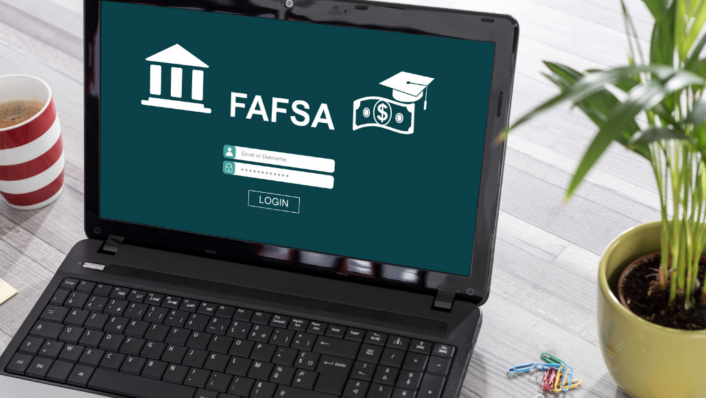For high school seniors and families of students evaluating their options when it comes to higher education, the Fall season is typically a time to prepare for the journey ahead.
Part of the process is looking at the expenses involved in a four-year degree, a two-year community college program or other options to fund the cost of education.
To explore grants, work-study and funding, the place to start is by completing the Free Application for Federal Student Aid (FAFSA) form.

Considering the Cost of College?
Gain insights into the types of expenses incurred while attending college and ways to reduce the costs and shares options for financing. Speak with a GreenPath counselor today.
What is the FAFSA Application?
- FAFSA is an application to determine a student’s eligibility for receiving federal loans or state funding. The FAFSA is not a loan or source of funding.
- The application is free to complete using this online form.
- Colleges and universities use FAFSA information to determine federal aid eligibility. Many states also use FAFSA data to award their own aid.
- The FAFSA requires financial information about the incoming student and their family’s finances. Most notably, a family’s tax returns are needed among other financial data.
When is the FAFSA application typically due?
- The earliest to file is typically October 1 for the following academic year.
- Filing the application as soon as possible is wise since financial aid is often given out on a first-come, first-served basis.
- College deadlines vary by school. Check with the institution’s financial aid office for deadlines.
- For state financial aid, each state’s deadline to submit FAFSA also varies. Check your state’s FAFSA deadline.
- The last day to apply for federal aid for the following academic year is June 30.
What information is needed for FAFSA?
According to federal resources, the following information is needed to complete FAFSA to determine federal and state student financial aid eligibility for dependent children.
Note that dependent students should submit the required information for themselves and their parents.
Married students planning for the next academic year should submit information for themselves and their spouses.
- Social security number for dependent student and dependent student’s parents.
- Driver’s license
- Student and student’s family W-2 and 1099 forms
- Most recent federal tax return
- Records of family’s untaxed income, Social Security, Temporary Assistance for Needy Families (TANF), Veteran’s benefits, welfare
- Recent bank statements
- Business income records
- Mortgage balances and payment information
- Investment information (stocks, bonds, etc)
- For Non-US citizens, a permanent resident card or alien registration number
Next Steps
Filling out and submitting the FAFSA form is an important step ito paying for college. Visit the resources below to apply, review and correct the form if needed, as well as the next steps after submitting the application.
Student Loan Financial Counseling
Understanding how to finance a college education can be complex. Looking at your full financial picture is a good place to start. GreenPath’s caring financial counselors are ready to provide free financial counseling related to student loans and other options.

Client Testimonials
“GreenPath was wonderful, and I wish I knew about it a long time ago. The people, the service that I get from it and the explanation of what we’re doing made it good.” – Jerome, via Consumeraffairs.com
“I had a credit card that I was swimming in and they helped me get the interest charges almost down to zero.” – Ashlie, via Consumeraffairs.com
Learn Money Management
Take the First Step
It Is Free & 100% Confidential
- Call 800-550-1961 for immediate help.
- Request a call from a counselor.
- Call 877-337-3399 for immediate help.
- Request a call from a counselor.
GreenPath is a non-profit credit counseling organization. GreenPath’s goal is to offer guidance and support to individuals seeking to manage and overcome financial challenges through education, financial counseling and debt management programs. The information provided is for educational purposes only. Consulting with a licensed financial advisor and tax advisor is recommended before making any major financial decisions. GreenPath is not a debt settlement company, credit repair company, credit repair service, nor does GreenPath provide debt consolidation loans. By using this website, you acknowledge and agree that GreenPath is not responsible for any financial decisions you make based on the information provided on this site.
